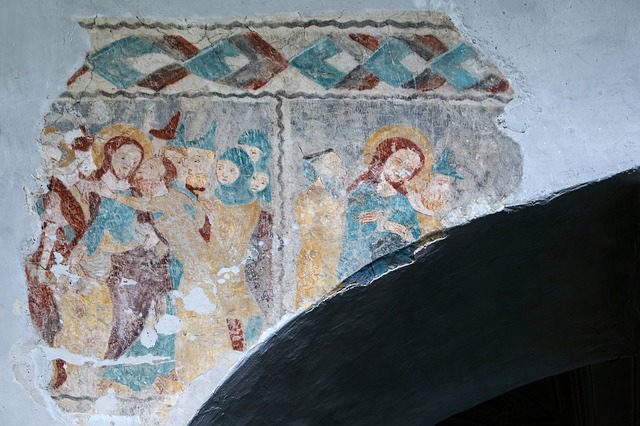I have asked a friend of mine (my best friend’s son actually) a few questions and he has agreed to answer them and let me post his answers on my blog. The point of this is so that people can try to listen to what a gay man has to say on issues such as love, marriage, God, life and anything else that comes up. Debate is not the point. A lot of people think that is closing down discussion, but what those people seem to forget is that discussion requires listening. A lot of it actually. When you are just forming your rebuttal, you aren’t listening. Please keep this in mind when commenting, because I won’t allow any comments through that I don’t want to let through since this is my blog and I can do that. If you would like to link me in a post about how horrible I am for either not supporting gay marriage or letting an openly gay man guest write on my blog, then go for it, I could use the traffic.
What is Love? Isn’t that such a strange thing to ask? What is Love? Interestingly enough, most people have a basic understanding of Love, but when asked the question, “what is Love?,” they have a fairly difficult time creating ONE cohesive thought. Most of the time, people just start listing off examples of Love, and/or acts of Love, showing that we kind of know what it means, or can at least recognize it when we see it. To me, Love isn’t really supposed to be something tangible. Love is constantly evolving within all of us. As our perception of life matures and develops, so does our comprehension of Love; it’s relative.
Love, to me, is something that fuels our actions. If we care for somebody in a positive way, it normally means that when we look at him or her, our perception of him or her is optimistic and moral. That perception then fuels our actions towards them, how we treat them.
It’s about the way we see such things as positivity, morality, value, and emotions. Thus, a lack of Love is a lack of the ability to understand such things and allow them to fuel one’s actions. This simply means that when we look at somebody, we perceive him or her in a negative way. We may not be able to recognize their positive traits, or understand their sense of morality, or we may not be convinced of their value, or comprehend their emotions.
Either way, if we perceive somebody in a positive or negative manner, our perception is in a state of constant progression, constant evolution. We can learn to Love somebody we do not (finally perceive good in them), or we can lose Love for somebody (realize that our perception of them was false, or maybe incomplete).
Love, to me, is relative. I Love my sister, and I Love my mother, however, I have a different Love for each of them. My Love for my younger sister may be one of protection and pride, while my Love for my mother may be one of admiration and education. I treat them differently because I perceive them differently. That perception is what fuels how I interact with them, how I Love them.
And I don’t believe that Love is relative to just me. If one were to ask a five year old what Love is, the five year old would respond with an answer such as, “letting my little brother have the last candy in the snack drawer.” However, if you were to ask a grown woman what Love is, she would tell you something that may sound like, “Love is when you would sacrifice anything for the people you care about; you would die for them if you had to. I would sacrifice my life for any one of my children, or my husband.” Both answers are adequate enough, and are both pretty similar, but the perception of Love is relative to how the two understand Life.
Now, let’s take a moment to think about where such “Love” comes from. If Love is relative, then where dose it start? To paraphrase something that I believe Jesus said, “Love thy neighbor as one would Love thyself;” which I believe is the second commandment. If Jesus is asking us to Love each other the way we Love ourselves, doesn’t that mean that he is asking us to Love ourselves first? Isn’t he asking us to treat others the way we would treat ourselves? Well, how does one treat themselves? What fuels the actions of our own well being(?)… our perception of ourselves; our Love for ourselves. I think that one of the least understood concepts of Love if the concept of Loving “thyself.”
As a gay man, I learned about morality and spiritualty without the use of the bible. Life taught me about Love. My father passing away when I was ten taught me about acceptance. My ex cheating on me taught me about self-worth. My friends lying to me taught me about loyalty. Making a personal commitment to remain pure (I’m a virgin) taught me about patience. Life, taught me about Love.
I believe that once you can recognize morality and spirituality within yourself, Love yourself for who and what you are, no matter what people think of you or say about you, is were we find this perception. Once we can look in the mirror, perceive a positive sense of spirituality, and allow our actions to be fueled by it, THEN we can look at others, perceive another sense of spirituality, and allow our actions towards them to be fueled by it. This perception, this recognition, is what teaches us to be selfless and sacrificial. What would you sacrifice for your physical and spiritual well being? What would you sacrifice for another’s, your children, or your husband, or your sibling, or your friend?
I may not have bible quotes memorized, and I may not know all the apostles, but when I look in the mirror, I can recognize my moral and immoral deeds, and I can Love myself through them. Because I can do that, I can Love others.
All in all, if you were to ask me what Love is on any given day, I, as an artist, would go on some sappy rambling about how Love is this and that, colorful and optimistic. However, the bottom line would be about my ideological, and theological, perception of life, and the connections I have with any life that my life is connected to (others, animals, nature, ect.). I probably won’t quote any bible verses, but I may tell you about my life and what I’ve learned of Love. To me, Love is just one big art project. To me, Love is just art.















